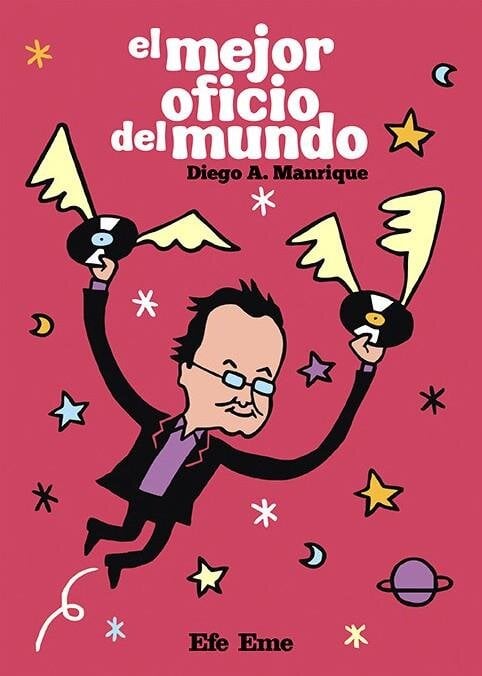Diego A. Manrique takes out the magnifying glass

With more than half a century of music journalism behind him, this anthology of texts, 'The Best Job in the World', by the maestro (of maestros?) Diego A. Manrique (Pedrosa de Valdeporres, 1950), from the last decade, published in ' Cuadernos Efe Eme ', is an entertaining record of his adventures and misadventures in practice, a stark portrait of the inner workings of the industry and the media (RNE, RTVE or Los 40) and a broken mirror of how the profession has deteriorated.

- Author Diego A. Manrique
- Editorial Efe Eme
- Year 2025
- Pages 229
- Price 20.43 euros
But, above all, they are also brief sketches by a master writer about bands and artists ( Tequila, Depeche Mode, Prince , etc.), but à la Manrique, that is, with his classic zigzagging carrot-and-stick structure: praise and pinching go back and forth in a bear-hug spiral, with respect to the insect he's focusing his attention on (a musician told me he sees himself as an artist), in a whole of salseology and emblem of that 'quote' about the senselessness of writing about music, which is like dancing about architecture... In other words, he's not Simon Reynolds, so to speak, searching in words for the inexpressible over the sub-bass of the beat. The mission of these texts is not, nor is it, to be cutting-edge (nor is it necessary; his jurisdiction is different and quite broad in time and genre; without forgetting his incomprehension and mockery of Yung Beef in his review of the Prisa canon in 'Babelia'). And yet (how so!), it's written with wisdom and great style, already standing out in the wasteland of the national guild of its own, for its funereal carelessness. Nor does it flatter, another point for it. On the contrary, it's always alert. As it should be, as little is given.
Dangerous with the pen-dagger (about Mariskal Romero, "even a cunning publicist like him would realize it"; also read about the ineffable José Miguel Contreras, José María Iñigo or even Serrat , Antonio 'the great favorite' Vega , Charly García, Operación Triunfo ...) and in a detached but not lethal balance of poison, he transfers to us secrets, myths (the matter of bribes to journalists) and what he will not say with everything he says, even about himself.
This "The Best Job in the World" takes a tour through several of the most representative movements and artists in a "quality mainstream" key up to 2010, to date the advent of urban music in Spain, but not exhaustively. It also focuses pleasantly on Latin America, with a profile, for example, of José Luis Cortés "El Tosco ," the king of timba, who exemplifies his finesse and knowledge. He also confesses that in a CBS bulletin in the late 1960s, a lad, yes, while he was in charge, wrote more or less that some of Neil Diamond 's music made him gag, incorruptible, and that we should all read it, that's the end of his work. But he also describes a catastrophic trip to Montreal to interview Leonard Cohen ... whom he didn't find! He drew on his expertise there, he has plenty of it. But with his own wit. A rare bird in today's algorithm.
ABC.es

